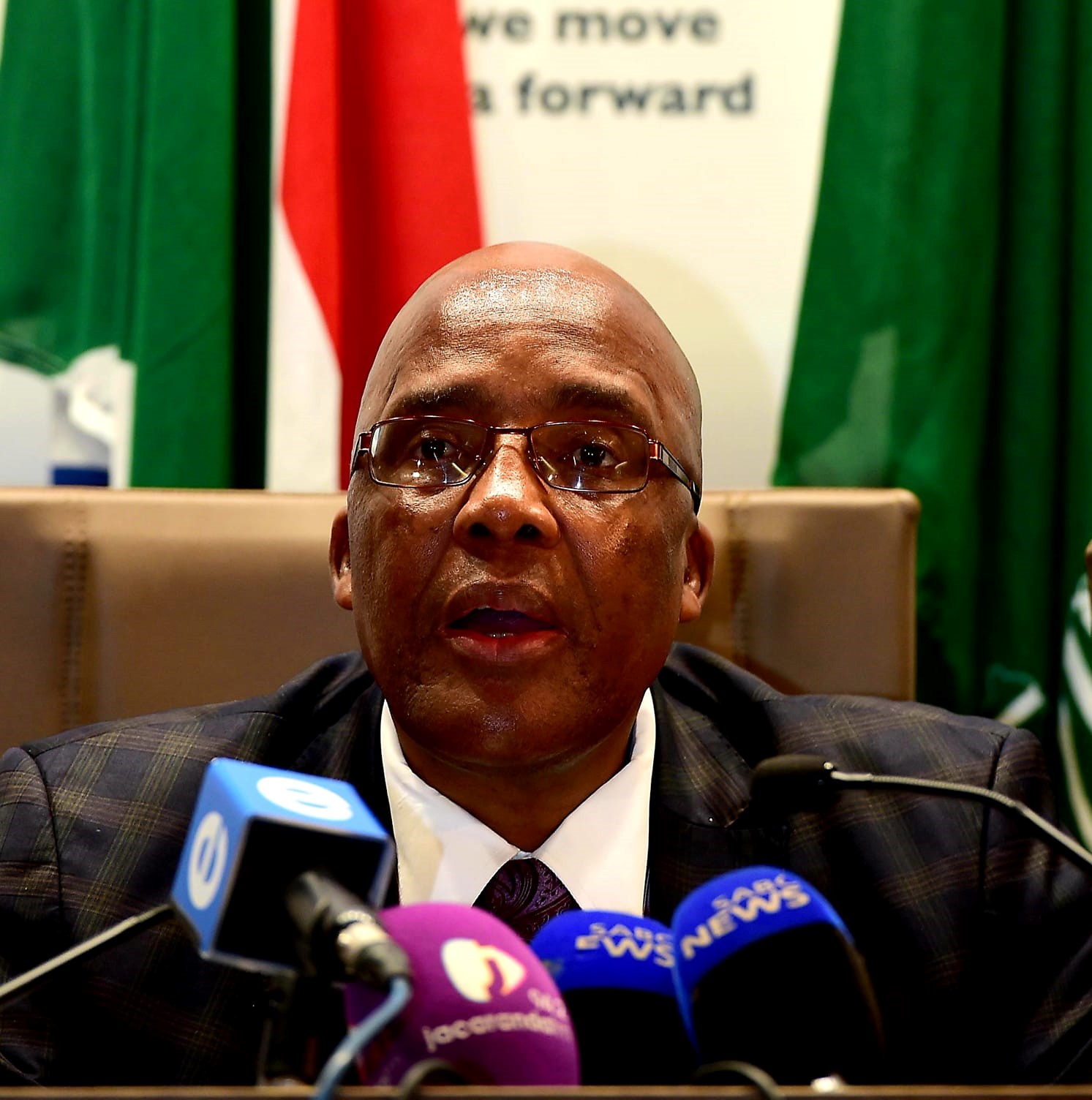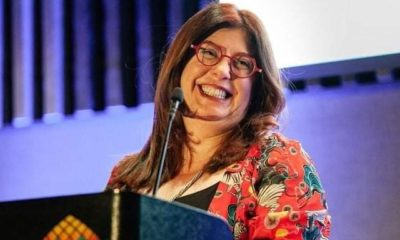
News

New law could bar foreign rabbis from living in SA
Published
2 years agoon
The South African Jewish community has often brought foreign rabbis to live and work in the country, adding diversity, expertise, and passion to the rabbinate. In particular Chabad shluchim (emissaries) have come to South Africa to enhance Judaism according to the Lubavitcher Rebbe’s vision.
But this may all come to an end as a result of a possible new law announced by Home Affairs Minister Dr Aaron Motsoaledi on 13 September, who said foreign national religious workers would no longer be eligible for work permits or permanent residency in the country and would be able to enter South Africa only on a visitor’s visa.
“We’re saying they must come only as visitors, but as visitors who can perform work. This change means there’s no avenue available for these religious workers to migrate to permanent residence status,” said Motsoaledi.
Rabbi Yossi Chaikin, the chairperson of the South African Rabbinical Association, says about a third or more rabbis in South Africa come from abroad. “There aren’t enough local graduates to fill positions across the board. So if they close the doors, we’ll be in a serious crisis.” He himself was born in Denmark, and came to South Africa after studying in Belgium and the United States (US).
He says he understands where Motsoaledi is coming from as the charges he raises are serious, “but at the same time, the process of becoming a resident is very involved, demanding police records and so on. If we bring a rabbi out from the US or other first-world countries, their documents are usually correct, so it would be safe. If this law is implemented, we’ll be compelled to challenge it.”
“[Such a law] would have a terrible impact on the Jewish community,” says Rabbi Greg Alexander of the Cape Town Progressive Jewish Congregation. “As a South African Jew who has been blessed to learn from rabbis who have come and stayed here from all over the world, I would be deeply saddened if this was made law.
“The rabbi who did my Barmitzvah and started me on my rabbinical path was from Israel. Rabbis [Moses] Weiler and [David] Sherman, who founded our movement in the 1930s and 1940s, were from Lithuania and America.”
“It was communicated verbally,” says Adrian Roos, the Democratic Alliance (DA) shadow deputy minister of Home Affairs. “It was announced during a parliamentary portfolio meeting. The DA has submitted parliamentary questions on how these rules can be changed without consultation, and how they will affect foreign religious leaders in South Africa on work permits.”
Roos says before this, foreign religious leaders could apply for a work permit and then later, potentially for permanent residency. But now, “the corrupt activity that allowed [Shepherd] Bushiri to obtain papers has led the minister to conclude that foreign religious leaders should no longer qualify for a work permit so that they, in turn, won’t be able to qualify for permanent residence”.
He’s referring to Malawian evangelist Shepherd Bushiri, who escaped South Africa in 2020 while facing money laundering charges. A chief director was dismissed, and four junior officials are still facing disciplinary proceedings for illegally granting Bushiri a residency permit. Motsoaledi said an investigation was also taking place to determine how another evangelist, Nigerian Timothy Omotoso, acquired South African residency. Omotoso is facing rape and human trafficking charges.
Asked if research was done on how this would affect religious communities, Roos says, “There was no indication of such research, and I’m questioning this. I’m trying to get feedback from religious organisations.”
Asked what religious communities should do if they want to object, he says, “The DA is getting the full details before determining the appropriate way forward. Section 9(3) of the Constitution holds that the state may not unfairly discriminate against persons on the basis of religion. While strictly speaking this refers to all persons in South Africa, religious leaders shouldn’t be punished for the actions of corrupt Home Affairs officials and the illegal actions of a single religious leader.”
South African Jewish Board of Deputies (SAJBD) national director Wendy Kahn says, “We are engaging with the Department of Home Affairs to understand the full statement made by the minister in parliament, as well as the possible implications for South African Jewry. Should it be required, the SAJBD will respond.”
Chief Rabbi Dr Warren Goldstein says he needed to find out more about the status of the proposed changes to the regulations and what to do about them. He’s speaking to his colleagues on the National Religious Leaders Council to explore co-operating with them, as well as taking legal opinion to clarify the potential implications of the possible changes.
South African Association of Progressive Rabbis (SAAPR) Chairperson Rabbi Emma Gottlieb says, “The SAAPR is deeply concerned about this announcement. This change would have a direct and negative effect on our movement, which is often dependent on rabbis from abroad to fill our congregational positions. We have begun a process to open our own rabbinic training programme in South Africa, but we’re still many years away from being able to offer home-grown rabbis to our community.
“Currently, only three of six progressive rabbis are South African citizens, and the rest are either permanent residents or on work visas,” she says. “We have one rabbinic candidate, who would also not be able to join our movement should this policy change be enacted. We haven’t been approached or alerted to this change by the Department of Home Affairs. We plan to support the members of parliament fighting this, and we call upon the South African Jewish Board of Deputies to participate in challenging this policy.”
“Jewish members of the DA are talking to our leadership,” says member of parliament and labour expert Michael Bagraim. “We want to challenge it. It will affect all religions. The concept is wrong in that everyone should have an opportunity to make a proper application and explain why their skills are needed in that particular position, regardless of industry or profession.
“In essence, there’s hysteria about foreigners coming here to work,” he says. “Instead of trying to tackle the real problem – porous borders and illegal workers – they’re attacking those who legitimately apply for work permits. The system of employment and job creation in South Africa has completely broken down. We have more than 11 million people who can’t find jobs because of a lack of skills and other factors. Instead of looking at the real problems, the government tries to find scapegoats.”
The Freedom of Religion South Africa (FOR SA) organisation says, “The state cannot unfairly discriminate against foreign nationals who want to come to work as religious workers. Fair criteria and assessment should be used in each work-visa category to ensure that legitimate applicants can obtain work visas. A blanket ban on foreign religious workers would arguably be unconstitutional.”
FOR SA’s executive director, Michael Swain, says the charges against Bushiri and Omotoso are serious, but these examples shouldn’t be used to paint all foreign nationals who do religious work as “criminals”.
The SA Jewish Report reached out to the Department of Home Affairs for comment, but hadn’t received a response at the time of going to print.







Colin
Oct 16, 2022 at 2:42 pm
As usual, the ANC over-reacts with knee-jerk draconianism. (Remember the silly but toxic “birth certificate” laws for kids travelling internationally, apparently, because one nomenklatura had issues with his ex).
The ANC needs to remember that the problem with Bushiri was his illegality, not his nationality.